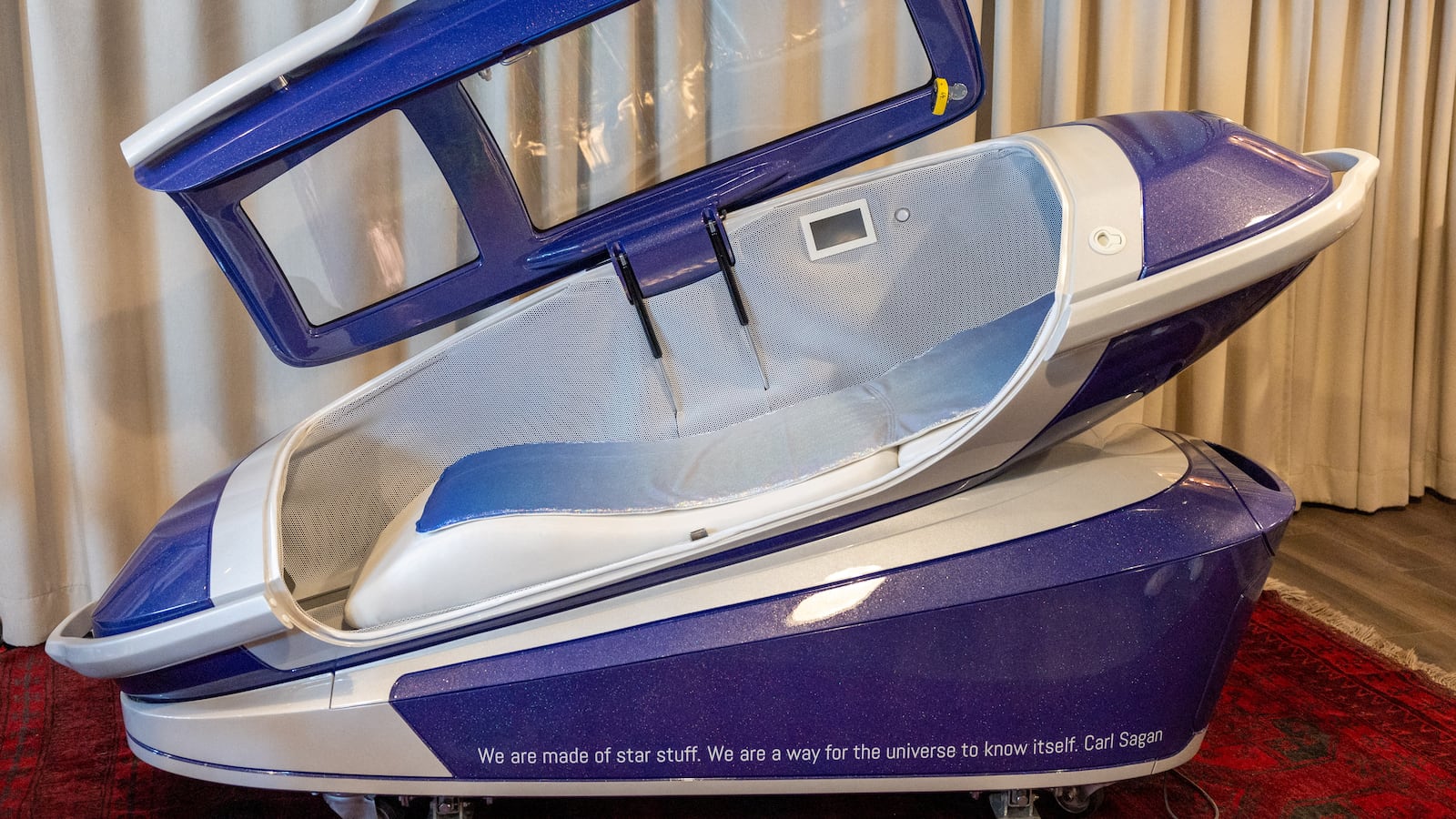The creator of a so-called “suicide pod” has spoken out following the controversial machine’s first use, which ended the life of a 64-year-old American woman in Switzerland.
Local authorities have also arrested several people and opened a criminal investigation after the woman’s death in one of the “Sacro capsules,” according to reports.
The woman died Monday afternoon in a forest in Merishausen, a Swiss town close to the German border, according to the newspaper Schaffhauser Nachrichten.
The pod’s inventor, Philip Nitschke, a 77-year-old former physician nicknamed “Dr Death,” reportedly watched the woman pass away from Germany via a camera located inside the pod, following her heart and oxygen readings. He said after on X that the woman had “an idyllic peaceful death in a Swiss forest.”
He told De Volkskrant that the woman “almost immediately pressed the button” after entering the Sarco.
“She didn’t say anything,” said Nitschke. “She really wanted to die. My estimate is that she lost consciousness within two minutes and that she died after five minutes. We saw jerky, small twitches of the muscles in her arms, but she was probably already unconscious by then. It looked exactly how we expected it to look.”
Swiss police later confirmed that a number of people had been taken into custody in connection with the incident. Public prosecutors in the canton of Schaffhausen announced that investigators were looking into charges of incitement and aiding and abetting of suicide, as well as more potential criminal offenses.
The Dutch newspaper De Volkskrant said that one of its photographers had been arrested in connection with the case. It was not immediately clear how many more people were arrested, nor who they were.
Florian Willet, a German scientist and director of The Last Resort, a Swiss nonprofit that advocates for the right to die, was present at the death as a witness, the NL Times reported. It was unclear if Willet had been arrested.
Willet told the Swiss tabloid Blick that the woman, who had traveled to Switzerland for the procedure, had struggled with a severe autoimmune condition for years. The woman’s death had been “peaceful, quick and dignified,” said Willet.
The Sacro capsule, first unveiled in 2019, is a 3D-printed pod that, when sealed, gradually pumps nitrogen into its chamber, causing the occupant to lose consciousness and eventually suffocate. The pod took 12 years and cost more than $1 million to develop, according to The Last Resort.
It is self-operated, with a button that begins the process on the inside of the pod, which proponents argue negates the need for medical supervision. The Last Resort has said that anyone wishing to use it must first be examined by a psychiatrist to determine that they are mentally fit—a process the American woman reportedly underwent before her death.
After her death, The Last Resort contacted Swiss police, De Volkskrant reported. Authorities later confirmed that several units swarmed the scene, secured the capsule, and took the body away for an autopsy.
Switzerland is one of the few countries in the world where assisted suicide is legal—under certain strict conditions. The person dying must take their own life without external assistance, and anyone assisting must not be doing so for any “self-serving” reasons, the government has said. Active euthanasia remains illegal there, as it does around the world.
The pod has provoked fierce debate in Switzerland. The country’s interior minister, Élisabeth Baume-Schneider, questioned its legality in a Monday parliamentary session.
“The Sarco suicide capsule is not legally compliant in two respects,” she said, according to Agence France Presse. “Firstly, it does not meet the requirements of product safety law and therefore cannot be placed on the market. Secondly, the corresponding use of nitrogen is not compatible with the purpose article of the Chemicals Act.”
Earlier this year, Blick reported that Schaffhausen authorities had informed Exit International, a voluntary euthanasia advocacy organization founded by Nitschke, that anyone caught operating the capsule would face criminal proceedings in Switzerland.
A conviction could result in a sentence of up to five years in prison, according to Al Jazeera.






